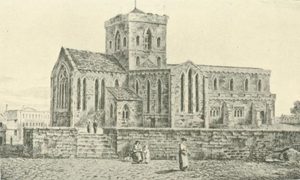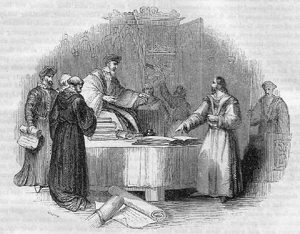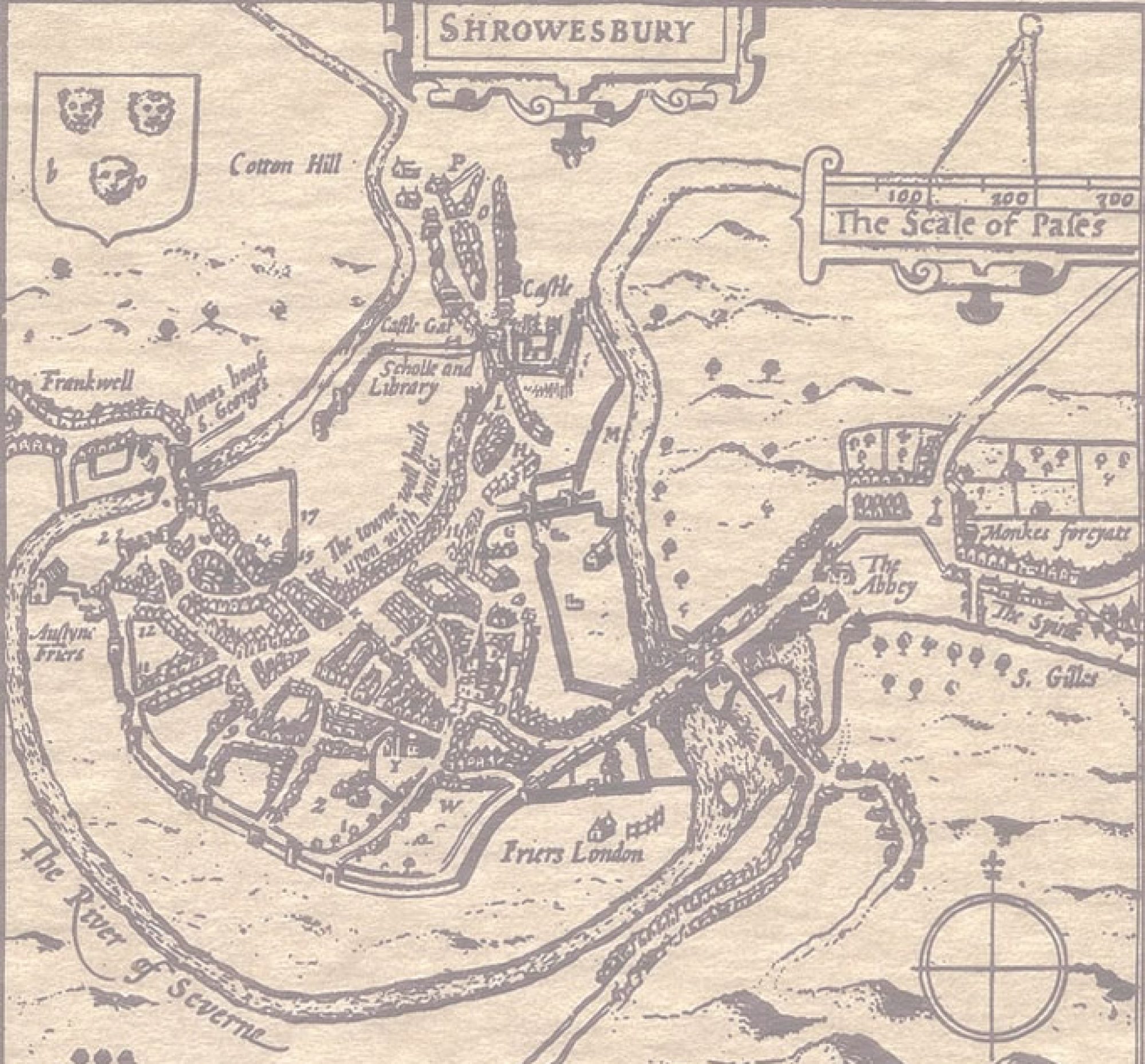
On Sunday April 17th 1407 William Thorpe preached a fateful sermon in St Chad’s Church, Shrewsbury. [Barbara Coulton, Regime and Religion, Shrewsbury 1400-1700, Logaston Press, 2010, pp.8ff] Though he was an ordained priest of the Roman Catholic Church, Thorpe condemned from the pulpit a number of doctrines and practices that the Church held dear. Among these were the veneration of saints and relics, purgatory (a kind of ‘no-man’s land’ that had to be passed through on the way to heaven), transubstantiation (the belief that the bread and wine in the communion service are literally changed into the body and blood of Christ), and the value of pilgrimage. During Thorpe’s sermon, mass was being celebrated in one of side chapels of St Chad’s, and when a bell was rung to denote that time of the service when the bread and wine were shown to the congregation, many of Thorpe’s listeners rushed to the side chapel in a disorderly and noisy throng. The reason for this was that even gazing on the bread and wine was supposed to bring benefits, a belief that Thorpe condemned. “For certain, the virtue and value of the most holy sacrament of the altar standeth much more in the belief that you ought to have in your souls than it doth in the outward sight thereof,” he said.
Angered by these rebukes, the congregation reported Thorpe to the town bailiffs, who had him arrested and thrown into the town gaol, where he languished for a month. The Abbot of Shrewsbury confirmed that Thorpe was a follower of the Lollards, and wrote to Thomas Arundel, Archbishop of Canterbury and also Chancellor of England, to find out what should be done with him. The Lollards were a loose association of people who were committed to reforming the Roman Church. The movement had been founded by John Wiclif (1320-84), an Oxford theologian and statesman who challenged some of the teachings and practices of the Church after studying the Bible. [Wiclif’s name has been traditionally spelled ‘Wycliffe’. The outline of his story can be found on websites such such as Wikipedia. I have used an old book, John Wicliffe, the Morning Star of the Reformation, by David J Deane.] The first English translation of the Bible was made by Wiclif and his circle to enable ordinary people to have the scriptures in their native tongue. Lollardy spread widely, affecting people of all social classes, including John Ball, one of the leaders of the Peasants’ Revolt in 1381. Persecution of the Lollards by both Church and State gradually intensified, and by 1406 measures had been passed that allowed religious heretics, such as Lollards, to be burned at the stake.

For this reason William Thorpe must have feared the worst as he appeared before Lord Chancellor Arundel. However, he refused to back down on any of his beliefs, and was eventually condemned as a heretic. [Thorpe himself wrote an account of the trial, which was later widely circulated as The Examination of William Thorpe. His story is also in Foxe’s Book of Martyrs, first published in 1563 and still available in print and online.] Back in his prison cell he wrote,
‘I myself busied me to think on God, and to thank Him for his goodness. And I was then greatly comforted, not only because I was then delivered for a time from the sight, from the hearing, from the presence, from the scorning, and from the menacing of mine enemies; but more I rejoiced in the Lord, because that through His grace he so kept me, both among the flattering and among the menacing of mine adversaries, that without heaviness and anguish of my conscience I passed away from them.’[Foxe’s Book of Martyrs]
What finally happened to William Thorpe is not known. Probably he died in prison, but his legacy lived on. Most Lollards went underground, but the movement continued right up until the time of the Reformation, the last Lollard martyr being burned in 1532. The Narrative of William Thorpe, written by himself and describing both his beliefs and his trial, was widely circulated long after his death, and probably had some influence on the Protestant Reformation begun in the time of Henry VIII. The Bailiffs of Shrewsbury had no idea of the long term effect of their actions!
